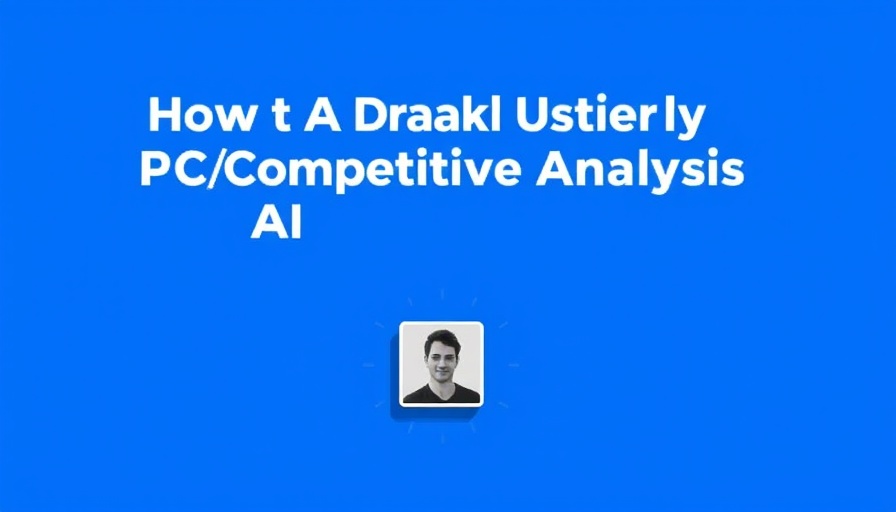
Mastering PPC Competitive Analysis in the Age of AI
As the digital marketing landscape evolves, businesses grapple with the importance of staying ahead of their competitors, particularly in the realm of Pay Per Click (PPC) advertising. Comprehensive PPC competitive analysis not only sheds light on your rivals' keyword strategies but also helps you refine your own approach, making your ads more effective and your spending more judicious.
Understanding the Power of Competitor Insights
Conducting an effective PPC competitive analysis can seem daunting, but with the right tools, it becomes manageable. By examining your competitors' ad strategies, landing pages, and budgets, you can gain a clearer picture of the market dynamics at play. Leveraging various platforms like Ahrefs not only highlights which keywords your rivals are targeting but also allows you to see their estimated spending patterns, providing you a tactical edge.
Diving Deep: The Role of AI in PPC Analysis
For those who don't have the luxury of time or extensive PPC knowledge, incorporating AI tools such as ChatGPT can transform the analysis process. This large language model assists you by analyzing crucial PPC data quickly. For example, it can perform keyword gap analyses—highlighting gaps in your current strategy compared to competitors— and even compile an actionable PPC plan based on the analyzed data. This is a game changer for marketers looking to implement effective strategies swiftly.
Step-by-Step Guide to Conducting a PPC Competitive Analysis
Begin by listing your top competitors. Utilize resources like the Organic Competitors report to ensure you're capturing all potential rivals. After gathering your competitor's domains, the next step involves analyzing their PPC campaign data. Look for spending trends that reveal how aggressive your competitors are with their bids and advertising strategies.
Employ tools to analyze these patterns systematically. For example, utilize the Paid Search tab in the Overview report to discern any noticeable spending shifts over time. Manually scrutinize these metrics, as a human touch often unveils details that AI might overlook.
Identifying Keywords: The Heart of PPC Strategy
Keywords are the backbone of any PPC campaign. Once you've gathered your competitor's ad spending insights, delve into what keywords they are bidding on. This includes both their ad copy and the landing pages connected to these keywords. Tools like Ahrefs are particularly effective in showcasing these aspects, differentiating them from standard keyword planners.
As you compile this data, note the keywords that bring tangible traffic but remain uncovered in your own campaigns. Leveraging insights from AI tools can help streamline these findings into a coherent strategy that benefits your advertising efforts.
The Road Ahead: Future Predictions in PPC Strategies
Looking ahead, being adaptive in PPC is crucial. Monitoring your competitors’ shifts in strategy—like seasonal spending increases towards the end of the year—can prepare you to pivot your own campaigns accordingly. With PPC budgets rising across industries, a keen eye on competitor strategies can reveal new opportunities for growth or necessary adjustments.
In conclusion, by marrying traditional analysis techniques with cutting-edge AI tools, digital marketers can create a robust and actionable PPC strategy that not only benchmarks against competitors but thrives within the competitive landscape. Engage with these insights, implement recommendations, and let your PPC strategy evolve. Your success in digital marketing hinges on your ability to adapt and respond proactively to the ever-shifting tides of competition.
 Add Row
Add Row  Add
Add 

 Add Row
Add Row  Add Element
Add Element 




Write A Comment